Curry culture in the UK was pioneered by the Bangladeshis, who first began to settle in Britain during the nineteenth century. The toil and dedication of these early pioneers transformed British cuisine, culture and society. For the past few years, I have been hunting down, collecting, preserving and sharing the previously unknown stories of the heritage and history of Bangladeshi-owned ‘Indian’ restaurants in Birmingham; those early pioneers who owned and worked in them, and their families and descendants.
It is the late 1980s. I am an early teenager. I am seated at table number 16 in my white shirt and black tie, with my dad sitting there at the opposite end facing me. The routine is the same every day; we wait for customers, on some days whole evenings go by without anyone coming in to eat. While we wait, dad reads his newspaper and I sketch something on scrap paper.
Dad reminisces on the old days: ‘In my time, we had it hard, four of us sharing one room…, we would even have shifts of sleeping in beds, whilst one was working, the other would sleep in your bed.’
I have heard it all before, many times. It goes in one ear and out the other. I don’t want to be in the restaurant with my dad, whilst all my friends are out having a laugh. It isn’t fair. I find some solace in my pen and paper and my ‘artistic creations’, in which my father has no interest.
My dad had arrived in England from Bangladesh in 1957. He passed away in 2009. We buried him in Handsworth Cemetery. When you lose someone you love, your heart yearns for those memories and stories you were oblivious to at the time of their telling. When my father died, I wished I could somehow turn back the clock. The seeds for Knights of the Raj were planted at that moment. I wanted to know who my dad was and how the restaurant trade had influenced and impacted him…and me.
The Knights of the Raj exhibition, exhibited in Birmingham Museum and Galleries in late 2017, was my attempt to reverse time and tell the extraordinary story of my parents’ generation. I wanted to take the visitors beyond the table covers and the kitchen, into the lives of those individuals that brought out their favourite dishes to them.
Those families I visited for my research, who invited me in to sit and share their stories, personal archives and photo-albums, know me simply as ‘the son of Watir Ali’.
I am back at table number 16.
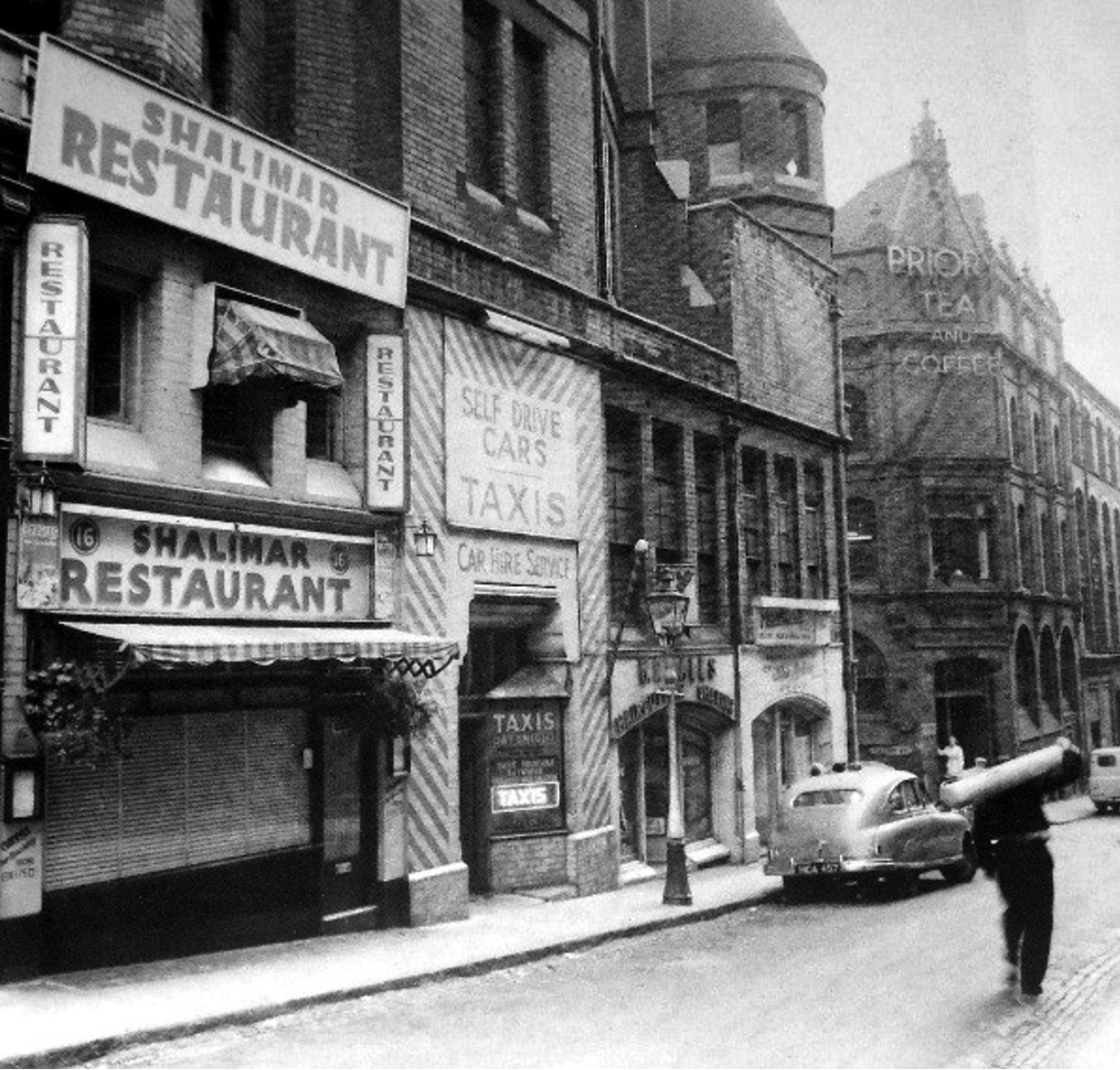
Shalimar Restaurant, Birmingham
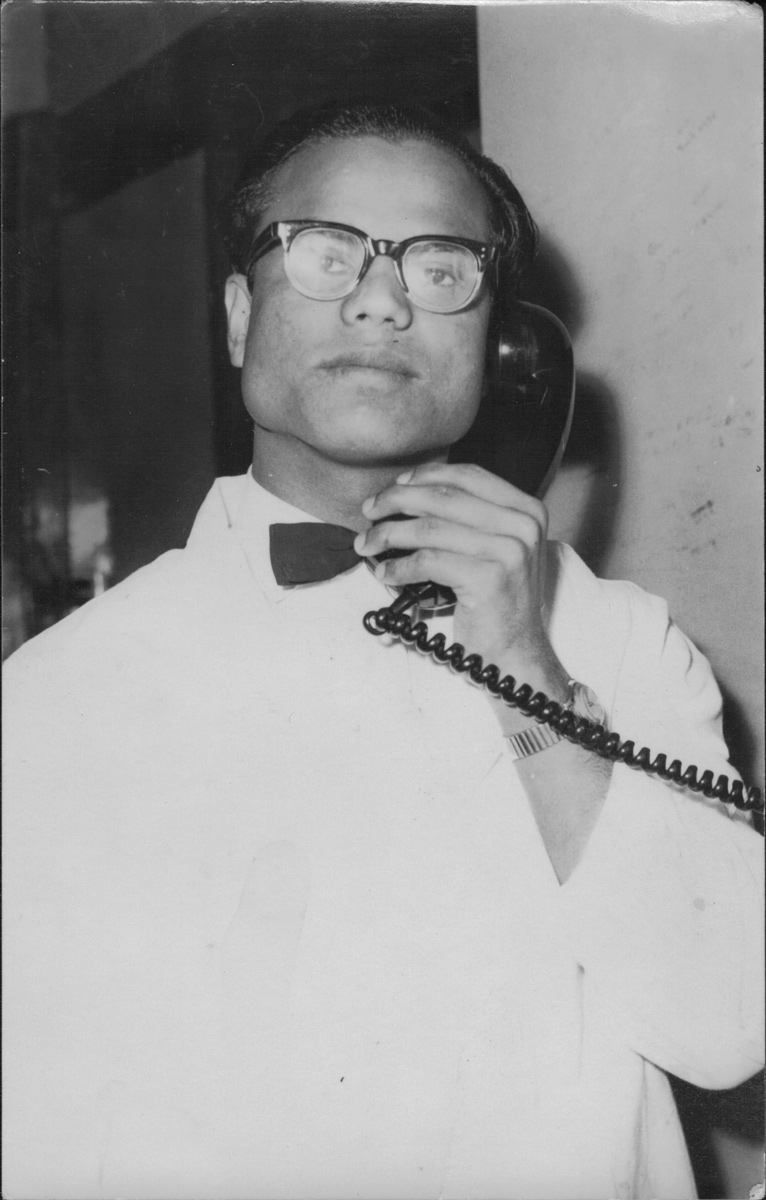
Badshahi Miah – working at the Shah Bagh Restaurant in the 1960s
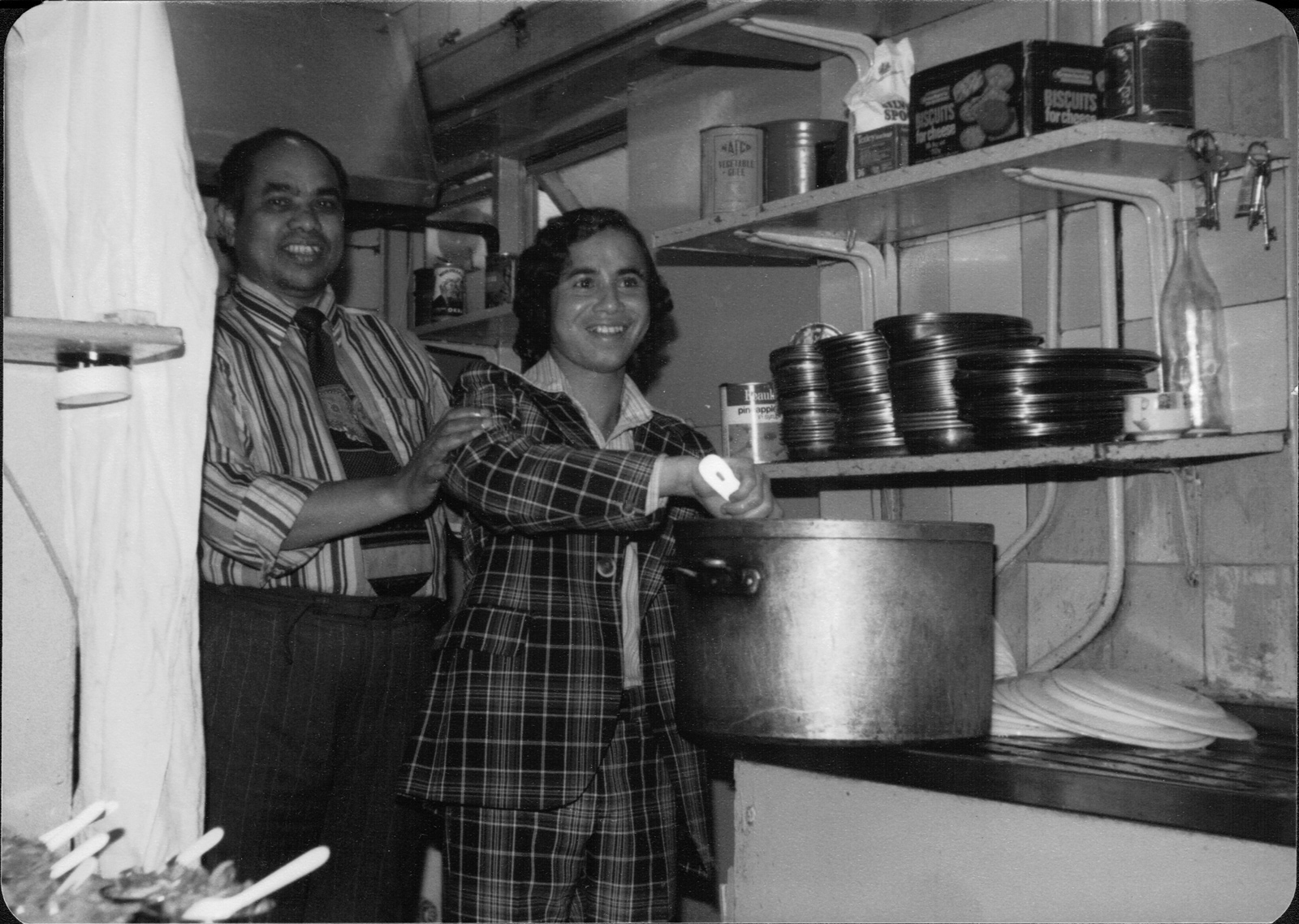
Mohobot Miah (left) the kitchen of Shah Jahan restaurant, Birmingham city centre
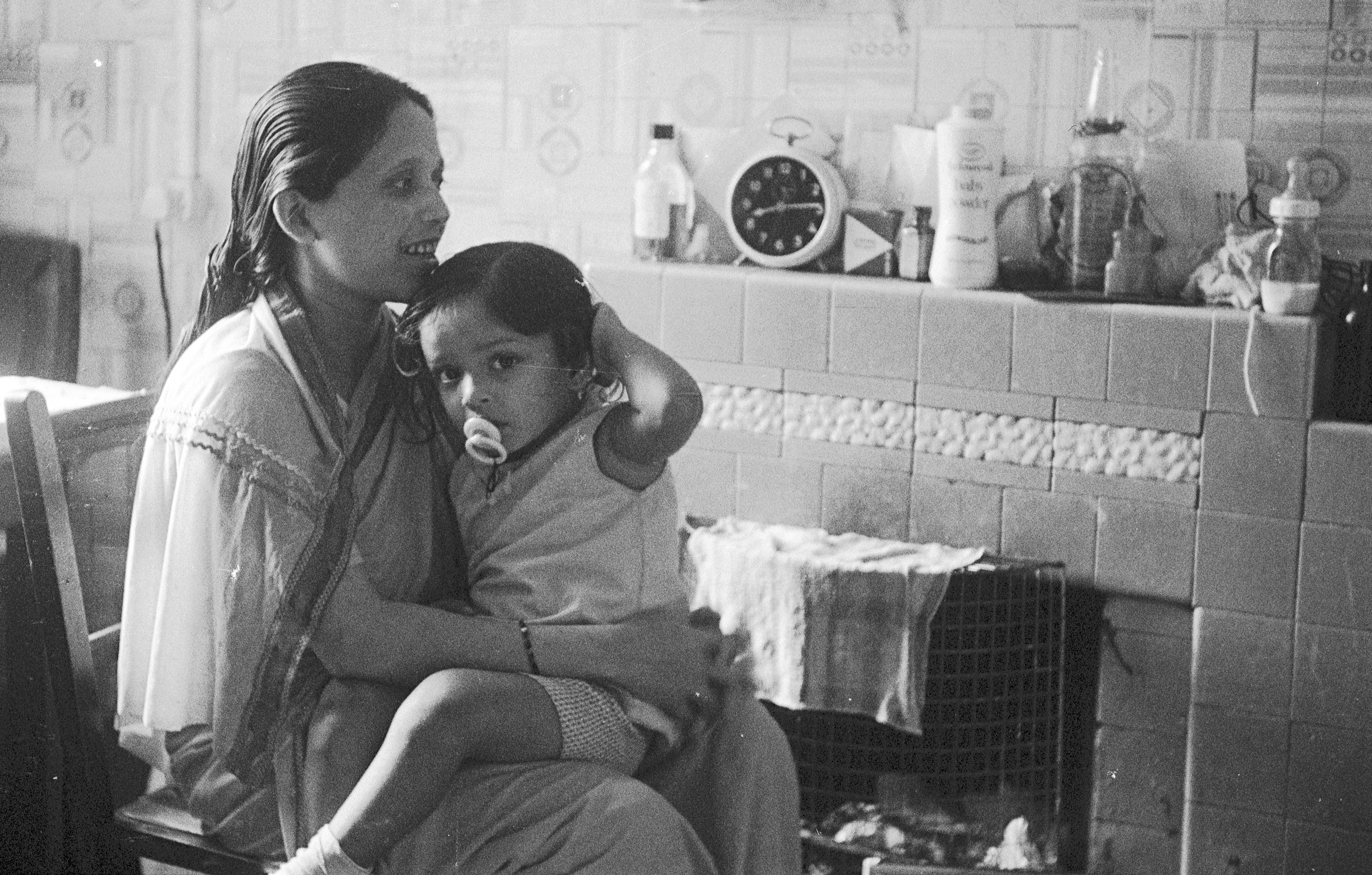
Kastura Begum with her daughter Helen, at home, 77 Duddeston Mill Road, c. 1970.
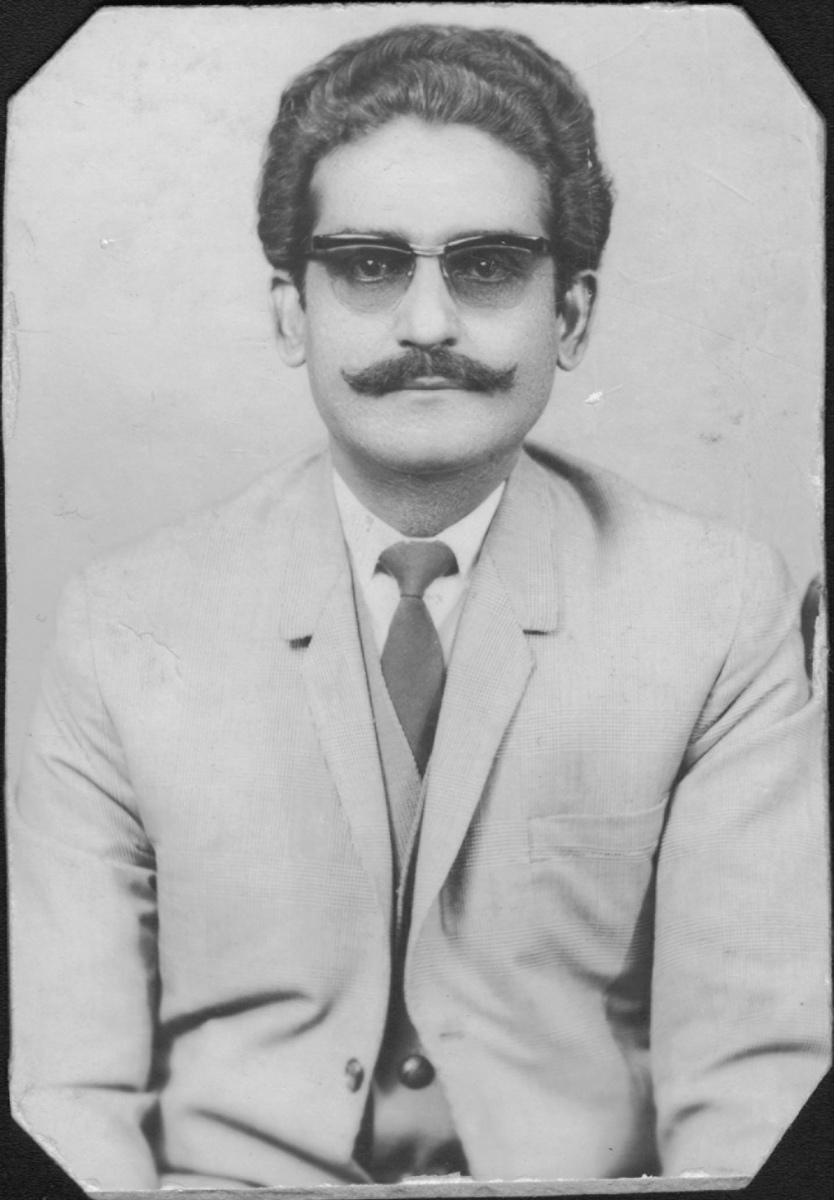
Eklas Miah – owner of the Shah Bagh Restaurant on Bristol Street, Horsefair, Birmingham, c. 1970.
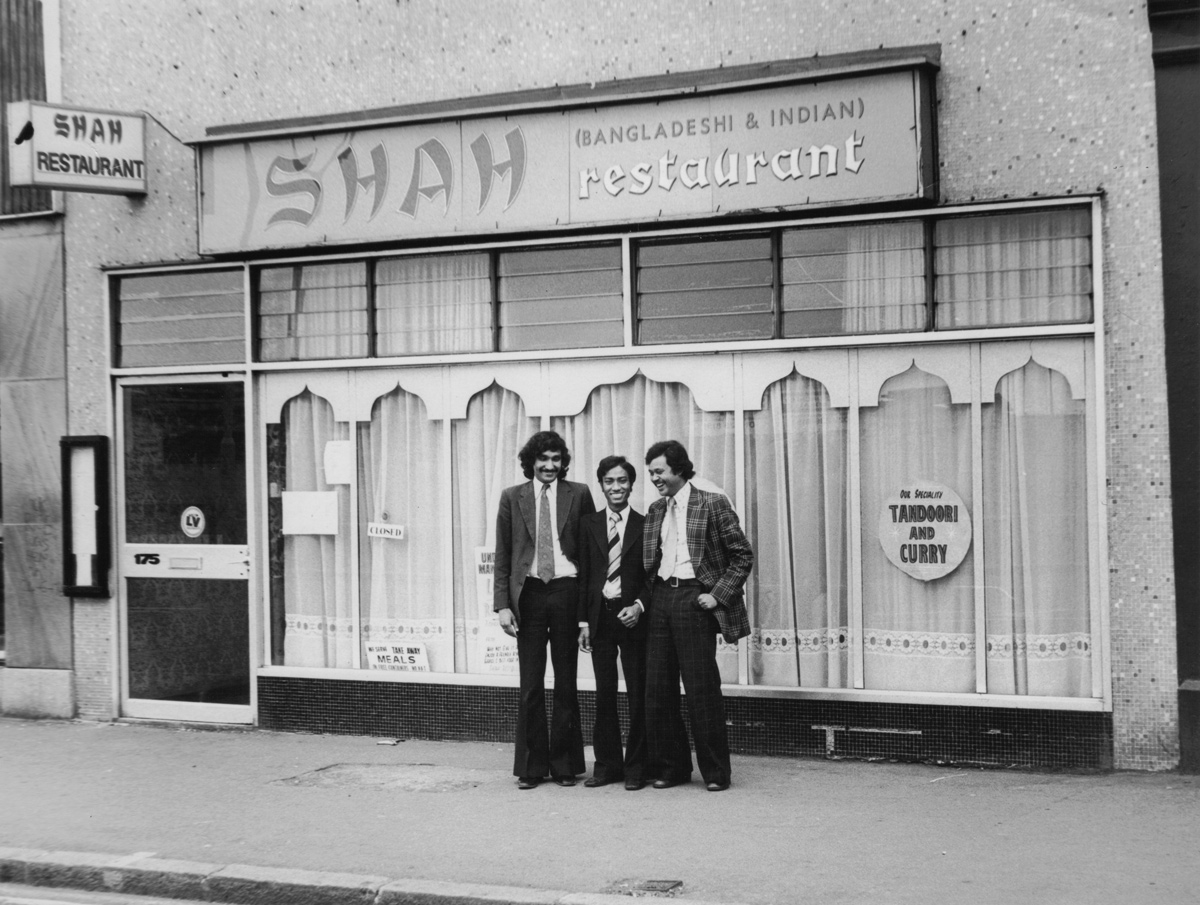
Shah Abid Ali outside of his Shah Restaurant in Broad Street, Birmingham c. 1978.
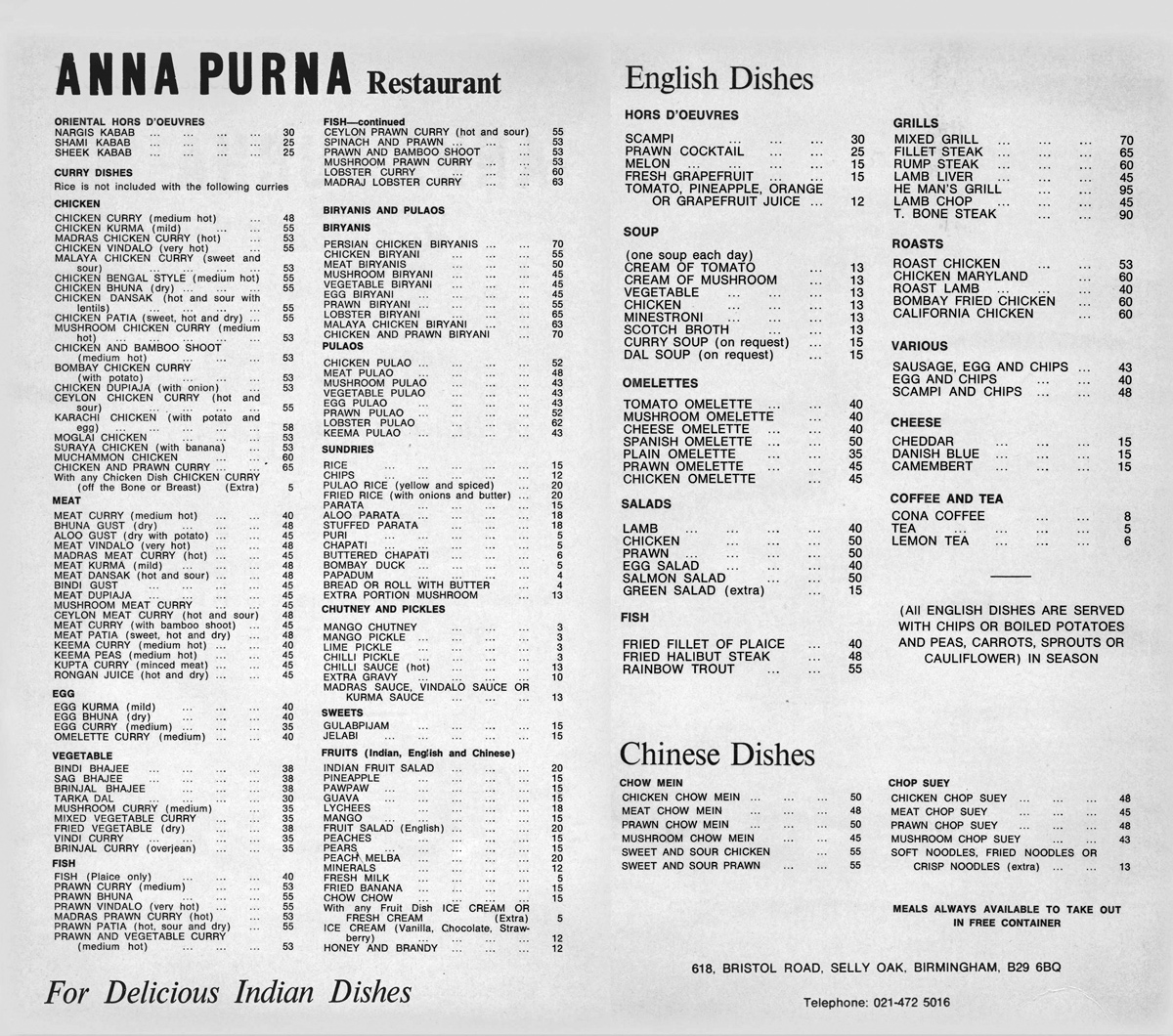
Anna Purna Restaurant menu from the early 1970s.
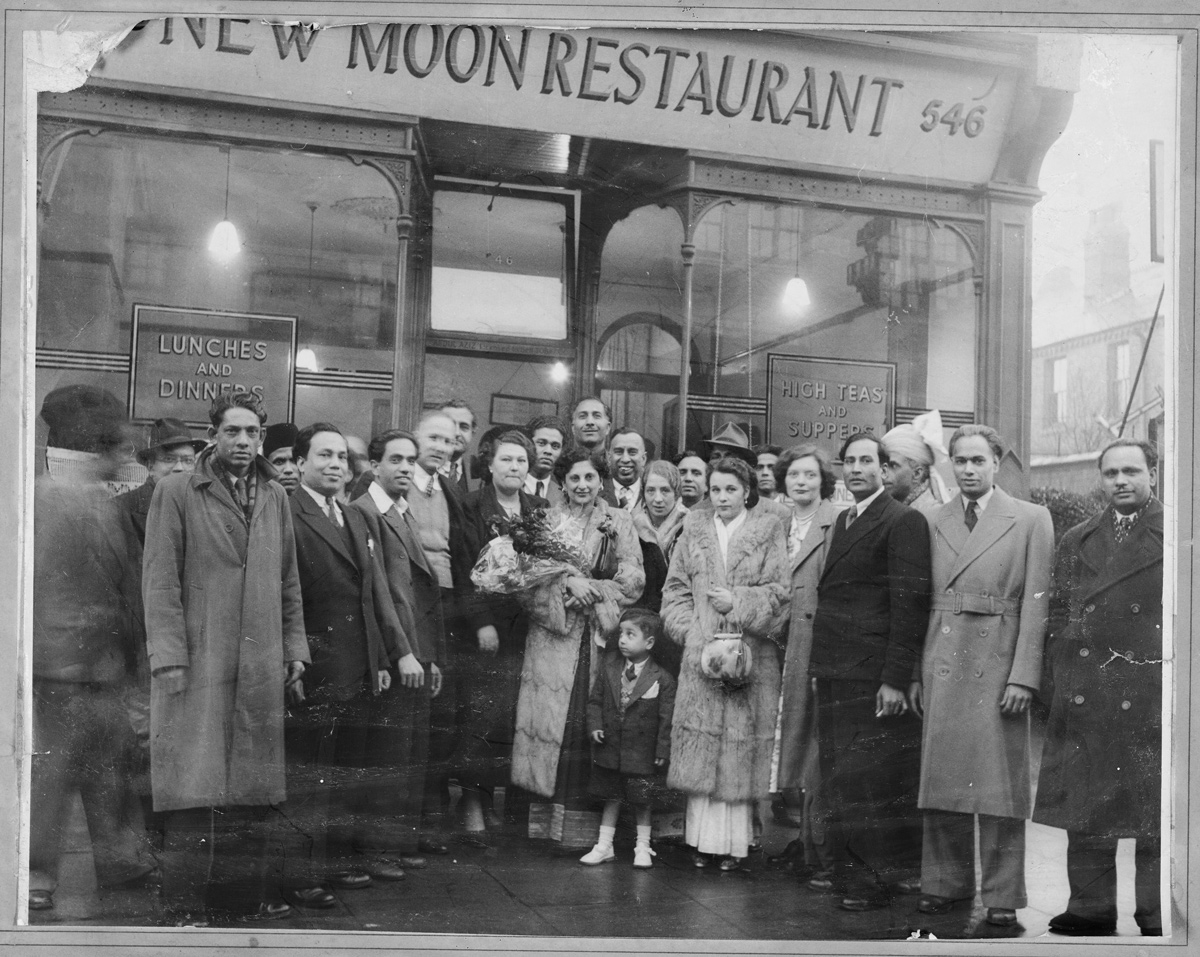
New Moon Restaurant, Beardwood Road, Birmingham owned by Abdul Aziz, c. 1945.
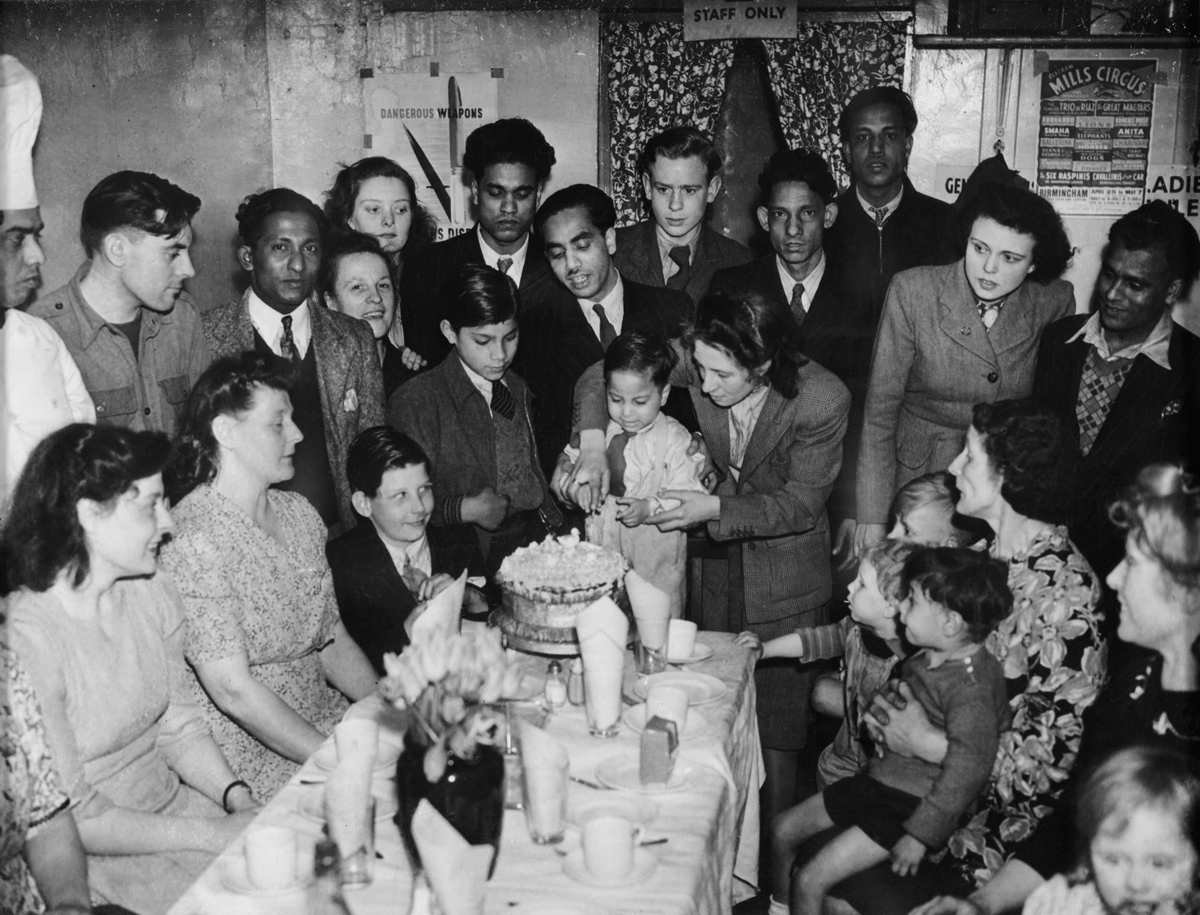
Family birthday party at the Darjeeling Restaurant, Steelhouse Lane, Birmingham. One of the first curry houses in Birmingham, owned by Abdul Aziz, c. 1949.
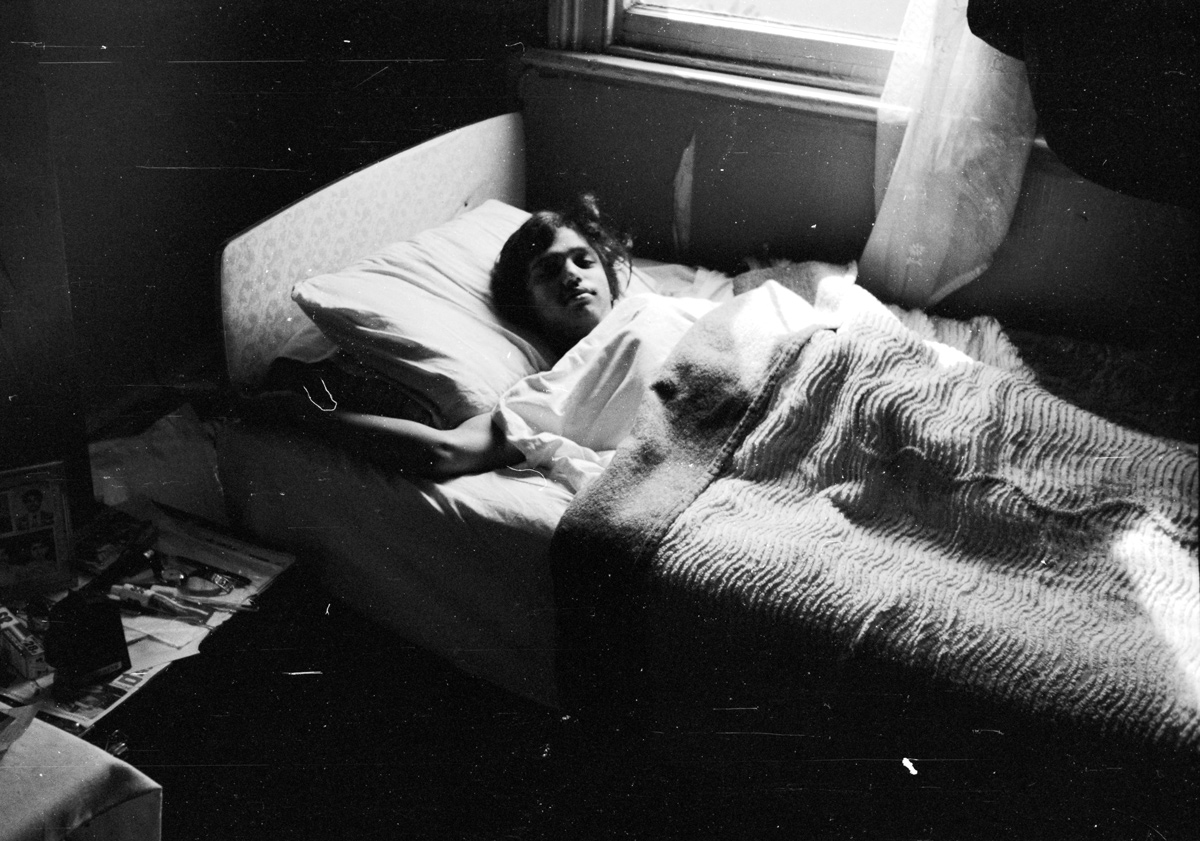
Syed Shelin Miah. Staff quarters, Light of Bengal restaurant, 1978.
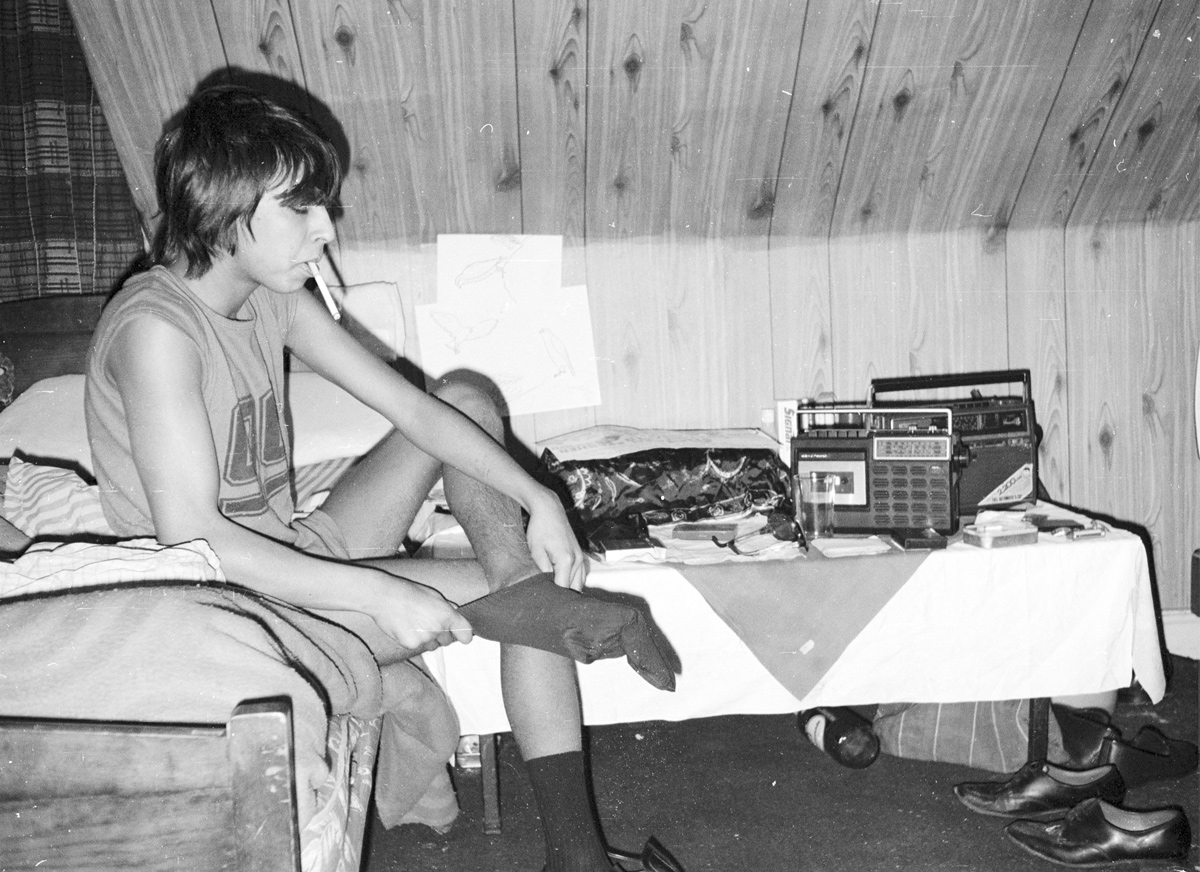
Abdul Ahad (known by his nickname Jilu Miah) in the staff quarters, upstairs at the Light of Bengal restaurant, Smethwick, Birmingham, c. 1978.
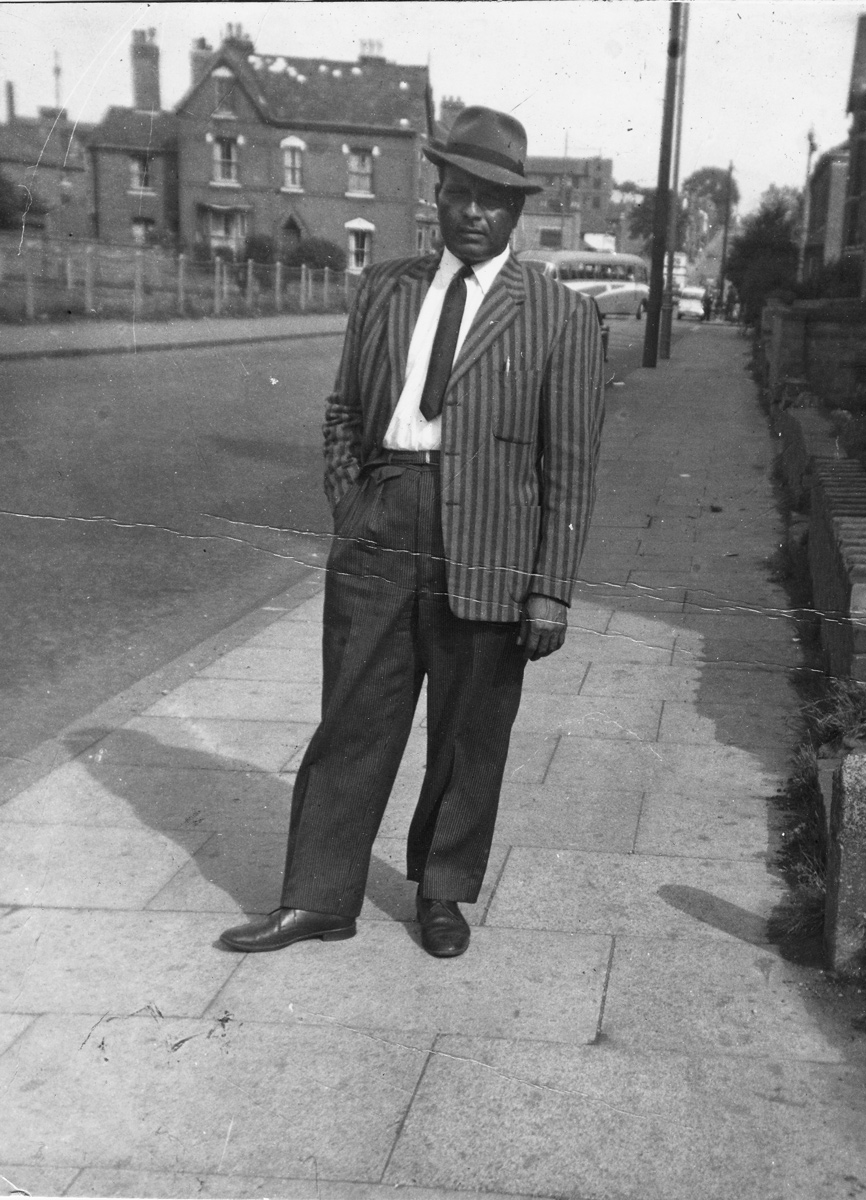
Mozzomil Kazi – owner of the Jinnah Restaurant.
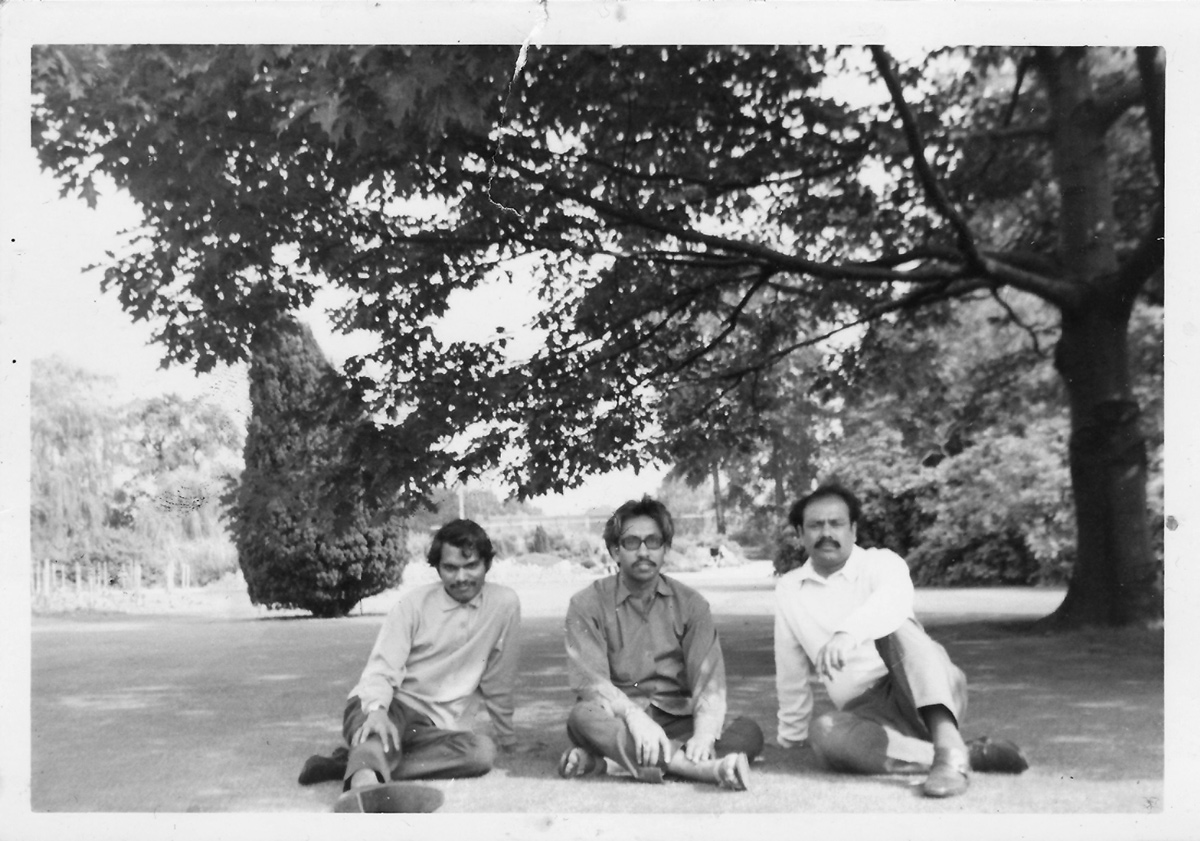
Sitting in a Birmingham park. From left to right: Unknown, Mofiqul Ambia Choudhury and Dewan Alam Noor Raja (owner of the Raj Bhooj Takeaway in Selly Oak, Birmingham).